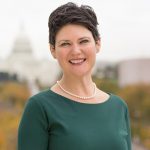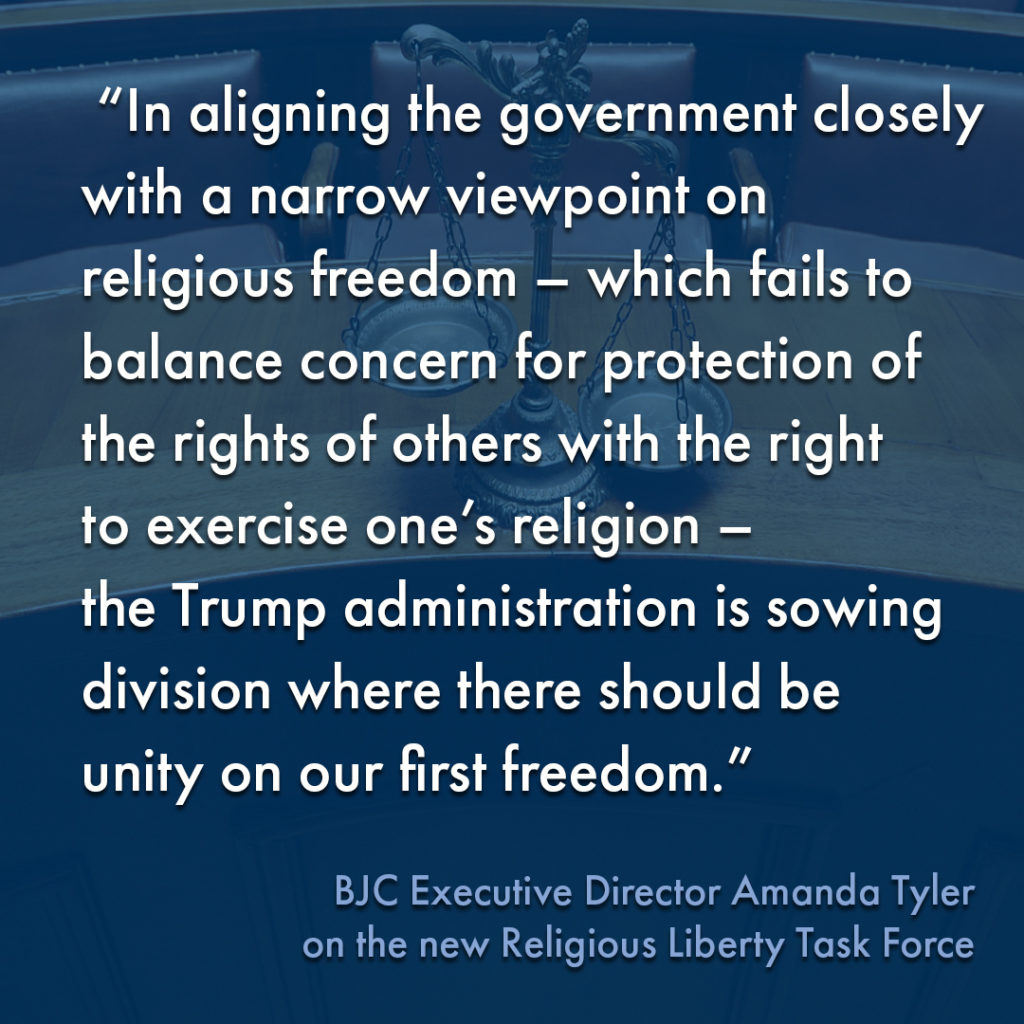
By BJC Executive Director Amanda Tyler
 Yet another announcement from the Trump administration was met with controversy this week. Attorney General Jeff Sessions hosted a Religious Liberty Summit, where he announced the creation of a Religious Liberty Task Force to “help the Department [of Justice] fully implement our religious liberty guidance.”
Yet another announcement from the Trump administration was met with controversy this week. Attorney General Jeff Sessions hosted a Religious Liberty Summit, where he announced the creation of a Religious Liberty Task Force to “help the Department [of Justice] fully implement our religious liberty guidance.”
I can support many of the statements Sessions made in Monday’s ceremony, including his reference to Roger Williams and freedom of conscience, the DOJ’s continued enforcement of the Religious Land Use and Institutionalized Persons Act, and prosecuting attacks and threats against houses of worship and people because of their religion.
But I take issue, as the BJC did when the religious liberty guidance was issued last year, in both the oversimplification of unsettled legal questions involving the free exercise of religion and the near total omission of any concern for government promotion of religion, which the Establishment Clause of the First Amendment prohibits. Ensuring religious freedom requires dutiful enforcement of both free exercise and no establishment protections.
Sessions stated in his prepared remarks at the summit that “a dangerous movement, undetected by many, is now challenging and eroding our great tradition of religious freedom.” I agree that we find ourselves in a perilous moment, but I fear that what is most in jeopardy is widespread support for religious liberty for all. And the actions of this administration, including the announcement of a one-sided Religious Liberty Task Force, are only exacerbating the problem. In aligning the government closely with a narrow viewpoint on religious freedom – which fails to balance concern for protection of the rights of others with the right to exercise one’s religion – the Trump administration is sowing division where there should be unity on our first freedom.
The BJC will remain engaged in this initiative, participating in DOJ “listening sessions.” We will continue to call for a full understanding of religious liberty for all, which demands that government neither inhibit nor promote religion and its practice. If religious freedom is going to survive – let alone flourish – in our pluralistic and rapidly changing society, we must all advocate for a more complete and inclusive understanding of religious liberty for people of all faith traditions and those who do not adhere to any religion.
Amanda Tyler is executive director of the Baptist Joint Committee for Religious Liberty in Washington, D.C.





